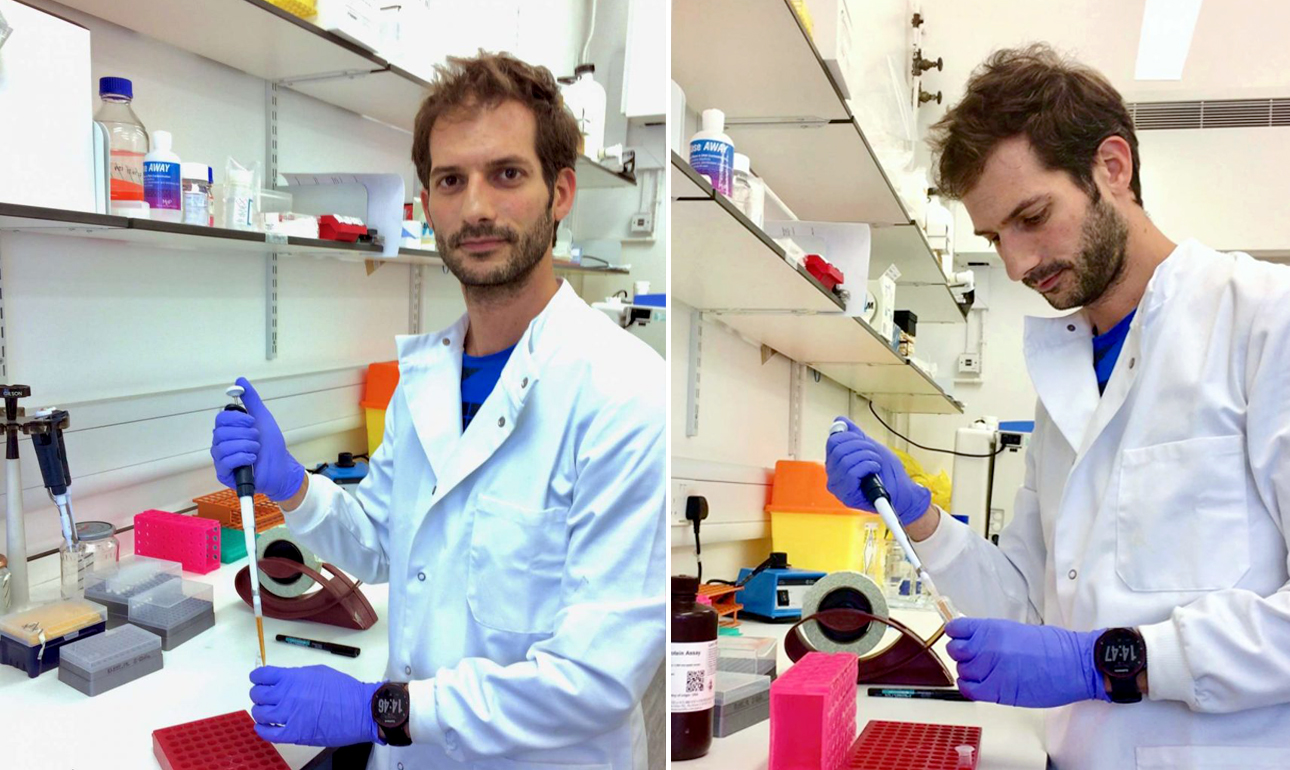[:el]Christoforos Tsantoulas is a research associate at the Wolfson Centre for Age-Related Diseases at King’s College London. He led the team of researchers from King’s College London that have identified a single protein molecule that may be responsible for chronic nerve pain in diabetes. The findings could one day lead to treatments which target the source of the pain.
Diabetic pain is very difficult to treat and the molecular causes are poorly understood. This new King’s College London study provides the first evidence that a single protein molecule – HCN2 – can by itself be responsible for a complex sensation such as diabetic pain.
The researchers used mouse models of diabetes to show that over-activity of HCN2, which initiates electrical signals in pain-sensitive nerve fibres, results in a sensation of pain. They also found that blocking the activity of HCN2, or removing it completely from pain-sensitive nerve fibres, stopped the sensation of pain entirely.
‘At present we do not have selective drugs which can suppress the activity of HCN2 without affecting other bodily functions, such as the regulation of heart rate. This research provides a stimulus for the development of targeted pain drugs that can block HCN2 without affecting the activity of other molecules’ the Greek researcher explained.[:]



